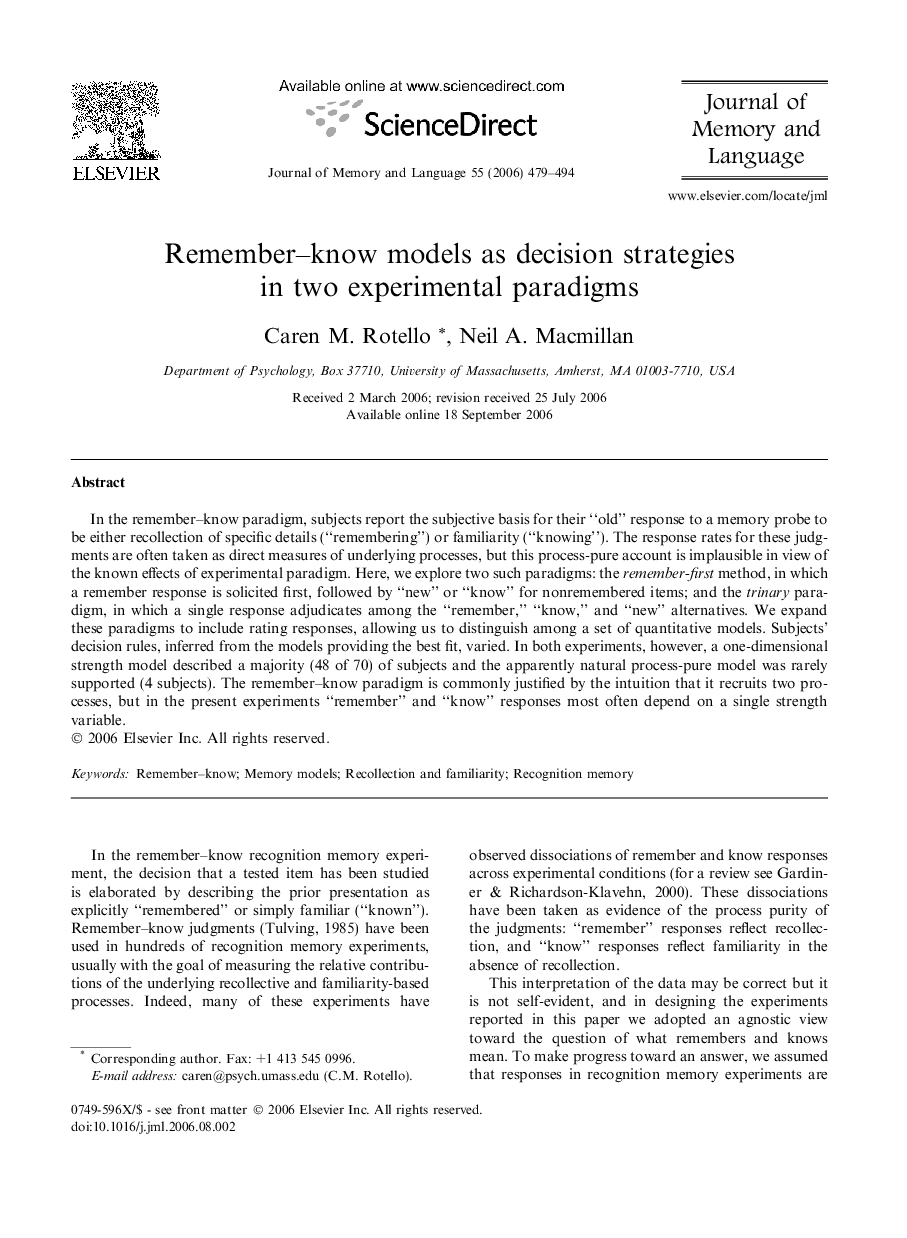| Article ID | Journal | Published Year | Pages | File Type |
|---|---|---|---|---|
| 10459784 | Journal of Memory and Language | 2006 | 16 Pages |
Abstract
In the remember-know paradigm, subjects report the subjective basis for their “old” response to a memory probe to be either recollection of specific details (“remembering”) or familiarity (“knowing”). The response rates for these judgments are often taken as direct measures of underlying processes, but this process-pure account is implausible in view of the known effects of experimental paradigm. Here, we explore two such paradigms: the remember-first method, in which a remember response is solicited first, followed by “new” or “know” for nonremembered items; and the trinary paradigm, in which a single response adjudicates among the “remember,” “know,” and “new” alternatives. We expand these paradigms to include rating responses, allowing us to distinguish among a set of quantitative models. Subjects' decision rules, inferred from the models providing the best fit, varied. In both experiments, however, a one-dimensional strength model described a majority (48 of 70) of subjects and the apparently natural process-pure model was rarely supported (4 subjects). The remember-know paradigm is commonly justified by the intuition that it recruits two processes, but in the present experiments “remember” and “know” responses most often depend on a single strength variable.
Keywords
Related Topics
Life Sciences
Neuroscience
Cognitive Neuroscience
Authors
Caren M. Rotello, Neil A. Macmillan,
